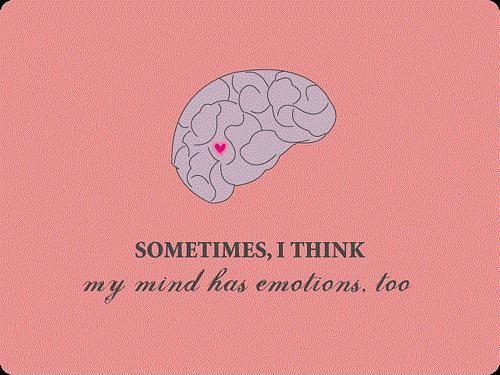
As emotionally driven creatures, it can be a challenge to balance our emotions with logic. Our emotional self tends to dominate, and it can often feel like we have no control over it. Balancing your emotions with logic is one of the most important life skills to learn because of the far reaching impact it can have on the decisions that we make. This post outlines four ways to achieve this balance. (Estimated reading time: 5-6 minutes)
“I don’t want to be at the mercy of my emotions. I want to use them, to enjoy them, and to dominate them.”
— Oscar Wilde
Have you ever said or done something on the spur of the moment, only to regret it later? After reflecting on it, you may have said to yourself, “what was I thinking?” or “that’s not like me at all!”
Whether it’s those momentary lapses in judgement or choices that you made which led to unsavory situations, you wish you had thought things through before reacting. During those times, it may have felt like your emotions clouded your mind and narrowed your vision.
But are our feelings to be blamed for our lack of discernment? This is a question that has plagued humanity for generations. Emotion and logic have always been seen as the two extremes on the spectrum of human reasoning, each favored over the other at different times in our history.
During the Enlightenment or The Age of Reason in the 17th-18th centuries, eminent figures like Voltaire and Adam Smith believed that rational thought was the most legitimate mode of thinking and that the ability to reason and be skeptical would help people break free from ignorance and irrationality. They were convinced that rational thought leads to progress.

Romanticism in the 19th century went against these ideas. The literature, artwork, architecture, and music from this epoch emphasized the subjective, the visionary, and transcendent aspects of the human experience. The followers of Romanticism had a deep appreciation for beauty and the sensual aspects of existence.
After a few centuries oscillating between emotion and rational thought, we are now convinced that it’s impossible to separate the two. This is because of the way our brains are structured. Neuroscientists have shown that there are three parts of the human brain – the reptilian brain that governs autonomic responses and regulates the body, the limbic brain that oversees emotions and feelings, and the neocortex that controls cognition.
Trying to balance our emotions with logic is a source of constant internal friction because of the way our brain is wired. Irrationality is a byproduct of our inability to process emotions efficiently. Our emotional self tends to dominate, and it can often feel like we have no control over it.
In fact, studies have shown that 80% of our decisions are driven by emotions instead of rational thinking. When tempted to eat that ‘one last cookie’, chances are high that you’re going to eat it!
The good news is that we don’t have to be slaves to our emotions. Just like wild horses, our feelings can be tamed once we tether them to the steady carriage of our mind, and ride it towards the destination that we have set for ourselves. An overly rational disposition will make us stoic and robotic, but too much passion can make us unreasonable, rash, and impetuous. The key is not to choose one over the other, but to create an optimal balance between the two.

We get better at finding the perfect ratio as we gain maturity and life experience, but we also need to make a concerted effort toward raising our awareness because of the potency of our passions. We have to develop the humility to pick up on our pockets of irrationality and understand their emotional roots through introspection.
Instead of being seduced by the freedom of our ardor, we must temper it with the calm and clarity of thought. By internalizing this ability, we open our minds to what’s really happening instead of relying on our feelings, assumptions, and expectations. In this way, we’ll override any dysfunctional patterns that could lead to the bad decisions that may thwart our success.
Here are four tips on how you can balancing emotions with logical thinking:
1. If you’re triggered, breathe and disengage: Unless you’re a Zen monk, you’ll often find yourself in situations where your buttons are pushed. It may feel like someone is reopening an old wound or they’ve activated your shadow self. In an event like this, the first thing you need to do is shift your physiological state by taking deep breaths to calm your nerves, and then get some distance from the situation. If you’re facing someone, ask them for a timeout. Your objective in doing this is to increase your reaction time so that later on when you enter a calm mindset, and your reasoning powers increase, you’ll be able to come up with practical solutions.
2. Write or speak about your feelings: The more we bottle up our emotions, the more jumbled and complicated they’ll come across. Writing about our feelings, or verbalizing them, will give our emotional impulses some structure and form, making it easier for us to understand and observe them from a place of detachment.
From this vantage point of objectivity, we will have a clearer understanding of why we feel the way that we do and become conscious of the beliefs and impulses that drive our behavior. Instead of transcending our feelings, we can use them to serve our thinking self and gain a better grip on our personal conduct.
3. Look at a situation from different perspectives: Anything can look dramatically different when viewed from various angles. This is because our viewpoints are based on the unique filters through which we understand and process the world. When we’re overly attached to a particular outcome, we’re much more susceptible to emotional decisions that could take us off-track. To avoid these blind spots, we can seek out other people’s perspectives, and use that to make a well-informed choice. You may ask the opinions of those who you respect, or try exercises that can offer you a different outlook. For example, you could do a future-self exercise to see how a situation might look in ten years.
4. Understand your emotional patterns and how your past influences it: Each one of us has developed our own unique way of interpreting the world, reliant on our genetic propensities and upbringing. Our cultural background also influences how emotionally reactive we are. For example, those of Latin descent, are known for being more expressive about their feelings, while people from colder countries in Northern Europe are more subdued and display a more reserved persona. In addition to taking your background into consideration, spend time observing yourself and taking notes on the way you react to things.
Your aim in learning in balancing emotions with your rational mind is to not only reduce stress but to integrate both these forces to nurture a sense of harmony. Like an alchemist, you’ll master the art of blending both energies efficiently in the right doses, to create a life that’s both practical and heart-warming.
All my best on your journey,
Seline

Reflection Question: Do you find it challenging to balance your emotions with logic? Why do you find it challenging?
Did you like this post? Sign up below and I’ll send you more awesome posts like this every week.

For me, balancing emotions and logic is very hard, I am a natural worrier so the logical side of my brain shuts down when I worry and I even have panic attacks over things at times. I am working on it and I am better than I was years ago but I still have a long ways to go 🙁